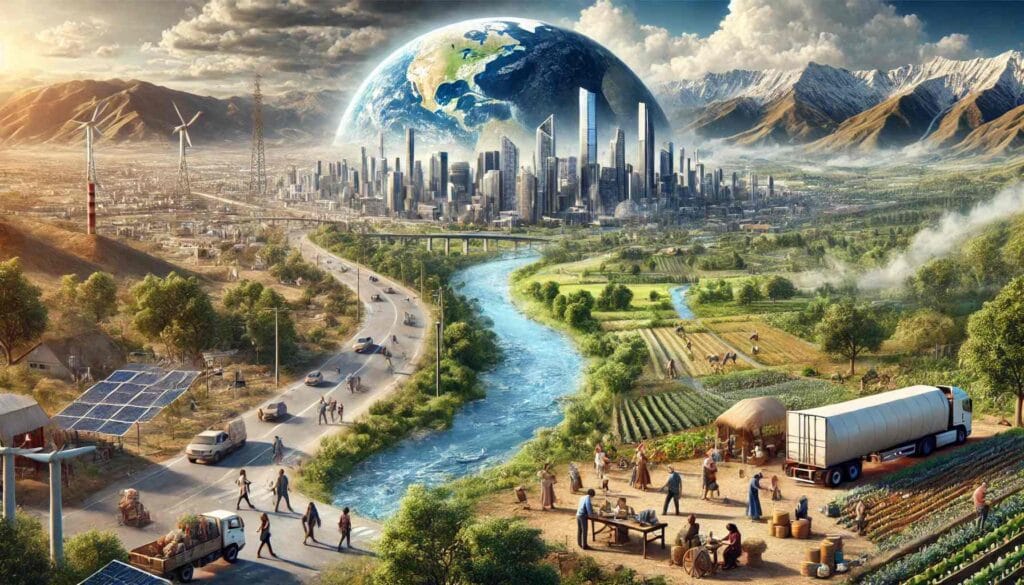The Impact of Geography on Personal Skills

Geography plays a significant role in shaping the development of personal skills. The environment in which an individual grows up, along with their access to various resources, has the potential to influence their abilities, cognitive skills, and even their career choices. From physical surroundings to cultural context, geography contributes in unique ways to skill formation.
1. Cognitive and Emotional Skills Development
The geographical location an individual inhabits can have a direct impact on cognitive development. For instance, people living in urban areas often have greater access to education, diverse social interactions, and exposure to different ideas. This exposure helps improve cognitive abilities such as problem-solving, critical thinking, and creativity. In contrast, those in rural or isolated regions may have limited access to similar resources, which can slow the development of these skills.
Additionally, geographic location often influences emotional skills. Individuals from different regions may develop varying coping mechanisms and emotional responses based on the cultural norms and social practices in their areas. These variations in emotional intelligence can affect interpersonal relationships and overall personal growth.
2. Social Skills and Networking Opportunities
Geography also affects the development of social skills. Urban areas, with their dense populations, provide more opportunities for networking, meeting new people, and interacting with diverse groups. The constant exposure to different social dynamics can enhance skills such as communication, negotiation, and teamwork. For individuals in rural or less populated areas, however, the limited social interaction may make it more challenging to develop these skills unless alternative solutions, like online communities, are utilized.
Moreover, geography can influence a person’s language skills. Different regions speak different dialects or languages, which means that individuals from various geographical areas are often exposed to distinct linguistic nuances. Mastering multiple languages or dialects can be a valuable personal skill, particularly in a globalized world.
3. Access to Resources and Skill Acquisition
Access to educational institutions, training centers, and specialized resources varies significantly depending on geographical location. People in large cities often have access to high-quality education and professional training programs that can develop both technical and soft skills. On the other hand, individuals in less developed regions may face barriers to acquiring these skills due to lack of infrastructure or educational resources.
In rural or remote areas, self-reliance and resourcefulness tend to be more emphasized. Individuals in such areas often develop practical and survival skills, including agriculture, craftsmanship, and knowledge of local ecosystems. These skills, though different from those developed in more urbanized settings, are equally valuable in specific contexts and careers.
4. Impact of Geography on Career Choices
Geography can also influence career trajectories by dictating which industries or job opportunities are more prevalent in certain regions. For example, individuals living near coastal areas may be more likely to pursue careers related to marine biology, shipping, or tourism. Similarly, people in technology hubs like Silicon Valley might gravitate towards careers in computer science, engineering, and tech entrepreneurship.
Thus, geography not only shapes the skills an individual acquires but also helps define the career paths they may take. The proximity to certain industries or cultural centers plays a key role in molding the aspirations and competencies of individuals, often influencing their long-term professional development.
5. Cultural Influences on Personal Skills
The cultural environment is another facet of geography that influences personal skill development. For instance, cultures that emphasize collective values may produce individuals who excel in team-oriented skills like cooperation, conflict resolution, and empathy. In contrast, cultures that prioritize individualism may cultivate traits such as independence, self-motivation, and personal responsibility.
The cultural practices and traditions specific to a geographical area shape how individuals approach personal growth and skill-building. For example, in many Eastern cultures, there is a strong focus on discipline, patience, and respect for authority, which can impact how children develop cognitive and emotional skills. On the other hand, Western cultures may emphasize individual achievement, which can foster confidence, assertiveness, and leadership skills.
Conclusion
The geographical location of an individual significantly impacts the development of personal skills. From cognitive and emotional intelligence to social abilities, geography shapes how people acquire, apply, and refine various skills throughout their lives. Understanding the relationship between geography and personal skills can lead to a better understanding of human development and offer insights into how to harness these skills for personal growth and career advancement. As the world becomes increasingly interconnected, the global movement of people, ideas, and resources will continue to influence the way individuals develop their skills and adapt to new challenges.
Source : Medium.com




